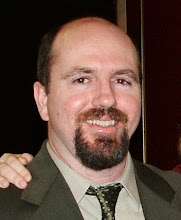BAGHDAD, Iraq - Saddam Hussein told judges Wednesday that he ordered the trials of Shiites who eventually were executed in the 1980s and said their lands should be confiscated, but he insisted that those actions were not criminal.
The former Iraqi leader also said his co-defendants should be freed, and he alone should be tried for the crackdown in southern Dujail after a 1982 assassination attempt on Saddam. He said the men simply were following orders.
"Where is the crime?" Saddam asked the court. "Is referring a defendant who opened fire at a head of state, no matter what his name is, a crime?
"If there is a law issued by Revolutionary Command Council that calls for confiscating land, then try the chairman of the Revolutionary Command Council. He is present," said Saddam, who was the head of the council, a main institution of his regime.
Saddam's argument is: the government passed a law, and these men obeyed the law, therefore, they cannot be found guilty of committing a crime. Implied also in his argument is that the people he had executed were complicit in an attempt to assassinate the leader of their country, and were therefore guilty of a capital crime.
It's a perfectly sensible argument, if we leave out the part about him being a dictator who, with the help of his followers, seized control of the government by force. That was his crime. All his other crimes flowed directly from it. A dictator can only hold onto power by killing those who oppose him, so of course he killed people.
For that matter, any government must be willing to jail and/or execute those who attempt to overthrow the government by force. Whether the government's actions in protecting itself are just depends primarily on whether the government itself is just, i.e., whether it is a government that protects the rights of individuals.
Protecting individual rights was never on Saddam's list of things to do. He was a bloody-handed dictator. Anyone had a right to depose or assassinate him, and he had no right to defend his murderous regime. He still has no right to defend himself on any grounds whatsoever, least of all on the need he had to protect and perpetuate his rule. As I have argued before, he was a tyrant, and, once deposed, the only proper thing to do with a tyrant is shoot him.
Update: Adding to my argument above, this trial, by assuming a legal framework for trying Saddam, is actually giving legitimacy to the Ba'athist regime. To argue that crimes were committed they must say that he broke the laws which existed at that time. Saddam responds that he did not, and then the argument is suddenly over whether he followed correct procedures in executing people, rather than whether he was a murderous thug. Hence, in a Reuters article we find the following quote:
"What we saw today was not Saddam admitting guilt, but admitting to the fact that he acted in accordance with his official duties and powers," said Nehal Bhuta, a legal expert from Human Rights Watch who has been monitoring the case.
And he did. He acted in complete accord with his official duties and powers as the tyrant of Iraq.
This is a complete travesty. Shoot him already.


2 comments:
...the only proper thing to do with a tyrant is shoot him...
Hanging would work, also. Not to nitpick or anything.
B Moe
True, and I believe the second article I linked said that that would be how they would execute him when, I mean if, he is found guilty. (Like there's any chance they won't.)
I'm not particular on the method of execution. It's this travesty of a trial that bothers me.
Post a Comment